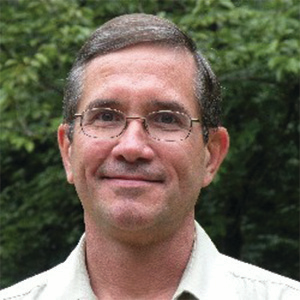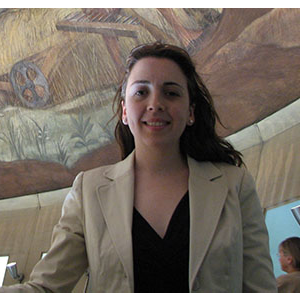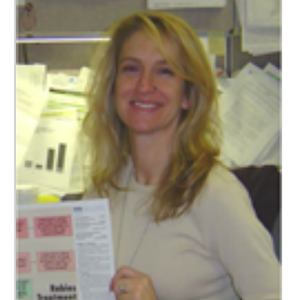
Dr. Paul Calle
Vice President for Health Programs at Wildlife Conservation Society/The Bronx ZooDr. Paul P. Calle, VMD, Chief Veterinarian and Vice President of WCS Health Programs, has been with the Wildlife Conservation Society (WCS) since 1989 and is a graduate of the University Of Pennsylvania School Of Veterinary Medicine. He completed one-year internships in Small Animal Medicine and Surgery at the Animal Medical Center in New York City, and in Zoological Medicine and Surgery at the San Diego Zoo. He is a Diplomate in the American College of Zoological Medicine, a Diplomate in the European College of Zoological Medicine, a Professional Fellow of the American Zoo and Aquarium Association, and is on the Board of Trustees of Species360 an NGO that develops a web based zoo records system. Dr. Calle has presented zoological medicine and surgery and conservation topics at conferences, hospitals, and universities, published numerous articles and book chapters, and chairs the WCS Institutional Animal Care and Use Committee (IACUC).
Dr. Calle is based at the Bronx Zoo’s Wildlife Health Center. He oversees the Zoological Health Program’s Clinical, Pathology, and Aquatic Health Departments for WCS’s Zoos and Aquarium. These departments provide medical, surgical, and pathology care for WCS’s four zoos and aquarium. He also oversees the Wildlife Health Program that makes health contributions to conservation throughout our global conservation programs. Since he began as chief veterinarian, a Molecular Diagnostics Laboratory was established, health contributions to local conservation efforts expanded, participation in international wildlife health projects - especially those focused on a variety of turtle species and Caribbean ground iguanas - increased, and global wildlife health activities integrated throughout our international conservation programs. In support of WCS’s conservation efforts, Dr. Calle has traveled to Africa, Asia, Russia, Latin America, and the Caribbean.

Dr. Ellen Carlin
Senior Health and Policy Specialist at EcoHealth AlllianceDr. Ellen Carlin received a bachelor’s of science in biology from the College of Mount Saint Vincent and a doctorate in veterinary medicine from the Cornell College of Veterinary Medicine. Her work at EcoHealth Alliance is focused on a variety of scientific and policy initiatives that advance the ecological health mission of the organization. Dr.Carlin provides scientific and policy subject matter expertise for a variety of other grants and contracts in EcoHealth Alliance’s portfolio. These include health security policy analyses, biosurveillance efforts, and research projects. She is a research associate with the Smithsonian Conservation Biology Institute, where she works with the Global Health Program to develop research and capacity building projects in partnership with EcoHealth Alliance.
Prior to joining EcoHealth Alliance, Dr. Carlin consulted in public health and policy for several years. One of the most important and eye-opening projects was One Health capacity building work in Guinea with colleagues from George Washington University. In 2013, she completed a fellowship at the U.S. Food and Drug Administration Center for Veterinary Medicine, where she worked on data analysis and other aspects of antimicrobial resistance. She had previously worked as senior professional staff with the U.S. House of Representatives Committee on Homeland Security, where for more than five years she handled medical preparedness, biodefense, and science and technology policy.
Dr. Carlin likes to keep her hands dirty in veterinary medicine, and has worked or volunteered as a small animal clinical veterinarian for organizations including the Washington Animal Rescue League, the American Society for Prevention of Cruelty to Animals, PetCo, and private clinics, and continues to do so, serving her interests in animal welfare, public health, and parasitology. She also enjoys the occasional small animal medicine volunteer excursion to developing countries or underserved areas of the U.S.
Her work is published in a variety of journals, including the Journal of the American Veterinary Medical Association, Trends in Parasitology, and Veterinary Therapeutics. In this context she has most enjoyed working with Cornell colleagues on prevalence mapping of small animal, vector-borne zoonoses like heartworm and Lyme disease. She has also published on smallpox which, although not a zoonosis, is an interesting pathogen case study in its ability to reveal our baseline preparedness for an ancient and relatively well understood infectious disease.
Dr. Carlin is a courtesy lecturer at the Cornell University College of Veterinary Medicine, an adjunct research scientist at the Columbia University National Center for Disaster Preparedness, and serves on the President’s Council of Cornell Women.

Dr. Sally Slavinski
Assistant Director Zoonotic, Influenza and Vector-borne Disease Unit of New York City Department of Health & Mental Hygiene, Bureau of Communicable DiseaseSally Slavinski, DVM earned her degree from Michigan State University in 1995. She practiced small animal
medicine for several years before returning to school to obtain an MPH from University California Berkeley in
1999 and became a diplomat of the American College of Veterinary Preventive Medicine. Upon graduation,
Dr. Slavinski joined the Centers for Disease Control and Prevention (CDC) as an Epidemic Intelligence Service
(EIS) Officer. In 2004, Dr. Slavinski joined the New York City Department of Health and Mental Hygiene where
she currently serves as the Assistant Director of the Zoonotic, Influenza and Vector-Borne Disease Unit (ZIVDU)